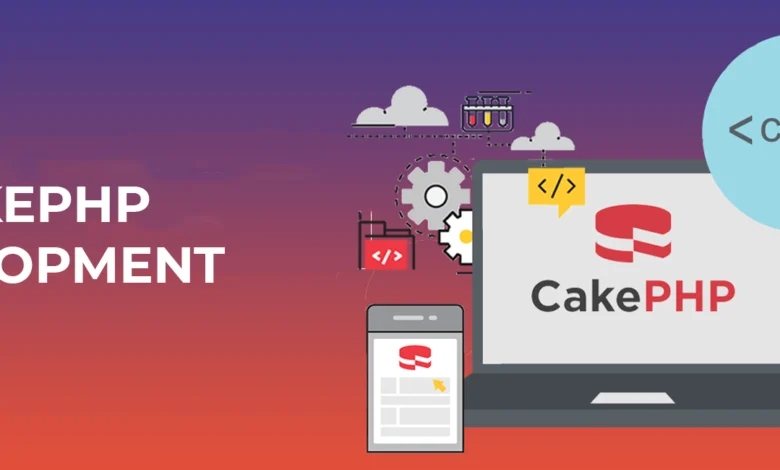How to Negotiate with a CakePHP Agency in the UK Like a Pro?

Negotiating with a CakePHP agency in the UK can seem daunting, especially if you’re not familiar with the process. However, with the right approach and a few key strategies, you can ensure that you get the best possible deal for your project.
In this blog post, we’ll guide you through the steps to negotiate effectively with a CakePHP agency uk. Whether you’re a business owner looking to develop a new website or an individual seeking to create a custom application, these tips will help you confidently navigate the negotiation process.
Understanding Your Needs
Before you start negotiating, it’s important to have a clear understanding of your needs. What exactly do you want the CakePHP agency to do for you? Make a list of your requirements and prioritize them. This will help you clearly communicate your needs to the agency and ensure you get the services you need.
Start by identifying the core functionalities you need for your project. Are you looking for a simple website, an e-commerce platform, or a complex web application? Each type of project will have different requirements, so it’s important to be specific. Once you have a list of requirements, rank them in order of importance. This will help you focus on the most critical aspects during negotiations.
Tips to Negotiate with a CakePHP Agency in the UK
Setting a Budget
Having a budget in mind is crucial when negotiating with a CakePHP agency. Know how much you’re willing to spend, and be prepared to discuss this with the agency. Keep in mind that the cheapest option isn’t always the best. It’s important to find a balance between cost and quality.
Start by determining your overall budget for the project. Consider all potential costs, including development, design, testing, and ongoing maintenance. It’s also a good idea to set aside a contingency fund for any unexpected expenses that may arise during the project.
When discussing your budget with the agency, be transparent about your financial constraints. This will help the agency provide a realistic proposal that fits within your budget. However, be open to discussing different pricing models, such as fixed-price contracts or hourly rates, to find the best arrangement for both parties.
Preparing for Negotiation
Preparation is key to successful negotiation. Before you meet with the agency, gather all the information you need. This includes your list of requirements, your budget, and any research you’ve done on the agency. Being well-prepared will help you feel more confident and make the negotiation process smoother.
Start by organizing all your documents and notes. Create a detailed project brief that outlines your requirements, goals, and budget. This will serve as a reference during negotiations and help you stay focused on your objectives.
Additionally, research the agency’s background and previous work. Familiarize yourself with their portfolio, client reviews, and any relevant case studies. This will give you a better understanding of their capabilities and help you ask informed questions during negotiations.
Being Flexible
While it’s important to have a clear idea of what you want, it’s also important to be flexible. Be open to suggestions from the agency and be willing to compromise if necessary. This will help you build a good working relationship with the agency and ensure that your project is successful.
Start by identifying areas where you can be flexible. For example, you may have a preferred timeline or budget, but be open to adjusting these if it benefits the project. Similarly, be willing to consider alternative solutions or approaches suggested by the agency.
During negotiations, focus on finding a win-win solution that meets the needs of both parties. Be willing to make concessions and compromises to reach a mutually beneficial agreement. This will help you build trust and establish a positive working relationship with the agency.
Understanding the Contract
Before you sign any contract, make sure you understand all the terms and conditions. If there’s anything you’re unsure about, ask the agency to explain it to you. It’s important to know exactly what you’re agreeing to and what the agency is responsible for.
Start by carefully reviewing the contract and any associated documents. Pay attention to key terms such as project scope, deliverables, timelines, payment terms, and any warranties or guarantees. Make sure that all your requirements and expectations are clearly outlined in the contract.
If you have any questions or concerns, don’t hesitate to ask the agency for clarification. It’s important to address any issues before signing the contract to avoid potential disputes later on. If necessary, seek legal advice to ensure that the contract is fair and protects your interests.
Building a Relationship
Negotiation isn’t just about getting the best deal; it’s also about building a good working relationship with the agency. Be respectful and professional throughout the negotiation process. This will help you establish a positive relationship with the agency, which can be beneficial for future projects.
Start by treating the agency with respect and professionalism. Be courteous and considerate in your communications, and avoid making unreasonable demands. Show appreciation for their work and expertise, and acknowledge their contributions to the project.
Focus on building trust and rapport with the agency. Be transparent and honest in your dealings, and follow through on your commitments. This will help you establish a strong foundation for a successful working relationship.
Conclusion
Negotiating with a CakePHP agency in the UK doesn’t have to be stressful. By understanding your needs, researching agencies, setting a budget, preparing for negotiation, communicating clearly, being flexible, understanding the contract, and building a relationship, you can negotiate like a pro.



